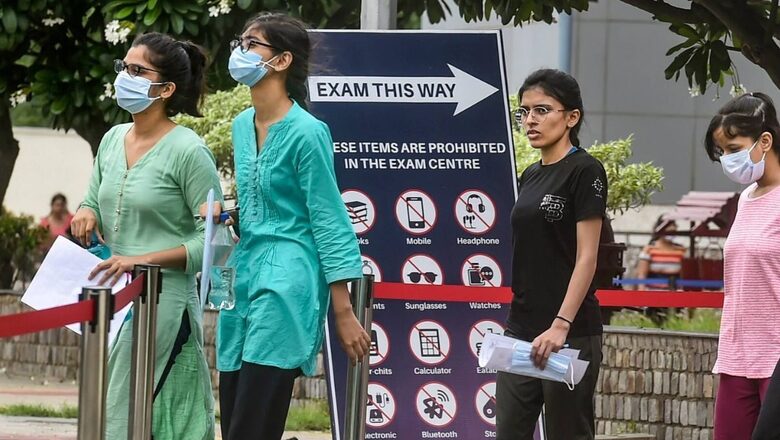
views
On July 24, directors from various national institutions and universities met in Tirupati to discuss the progress and future plans concerning the National Education Policy (NEP 2020) introduced three years ago. At SV University Senate Hall, a joint news conference was conducted to discuss the implementation of NEP 2020 so far and the future plans that would be made in compliance with it.
At the press conference, Indian Institute of Science Education and Research (IISER Tirupati) Associate Professor Rajesh Viswanathan, Vice-Chancellor K. Raja Reddy (Sri Venkateswara University), Indian Institute of Technology Tirupati (IIT-T) Director K.N. Satyanarayana, National Sanskrit University Professor Sankar Narayan, Vice-Chancellor D. Bharathi (Sri Padmavati Mahila Viswa Vidyalayam), and Kendriya Vidyalaya Sangathan (KVS Hyderabad) Deputy Commissioner Manjunath announced their adoption of an open curriculum and transdisciplinary course structures.
As per reports, Satyanarayana, the director of IIT-Tirupati, highlighted the value of multidisciplinary education, value-based instruction (such as professional ethics, the arts, lifestyle management, and environment), and expanded internship possibilities. He further noted that the optional freedom, skill development, and community-oriented projects ensured an emphasis on nation-building that was desperately required.
Vice-Chancellors Raja Reddy and D Bharathi emphasised the NEP 2020’s university-industry connectivity, community participation, and emphasis on incubation.
Professor Sankar Narayan spoke about how the curriculum at Sanskrit University is being built following the lines of the old Nalanda and Takshasila universities. While KVS Hyderabad Deputy Commissioner Manjunath noted that the KVS followed the National Education Policy structure beginning with the foundation courses.
On July 29, 2020, the Union Cabinet gave its approval to the National Education Policy (NEP), a transformative document that outlines the vision for India’s future educational system. This new policy supersedes the National Policy on Education of 1986. The primary objective of the NEP is to establish an education system that is deeply rooted in Indian values while providing access to high-quality education for all. By doing so, the policy aims to propel India towards becoming a global knowledge superpower, fostering growth and development in the nation.


















Comments
0 comment